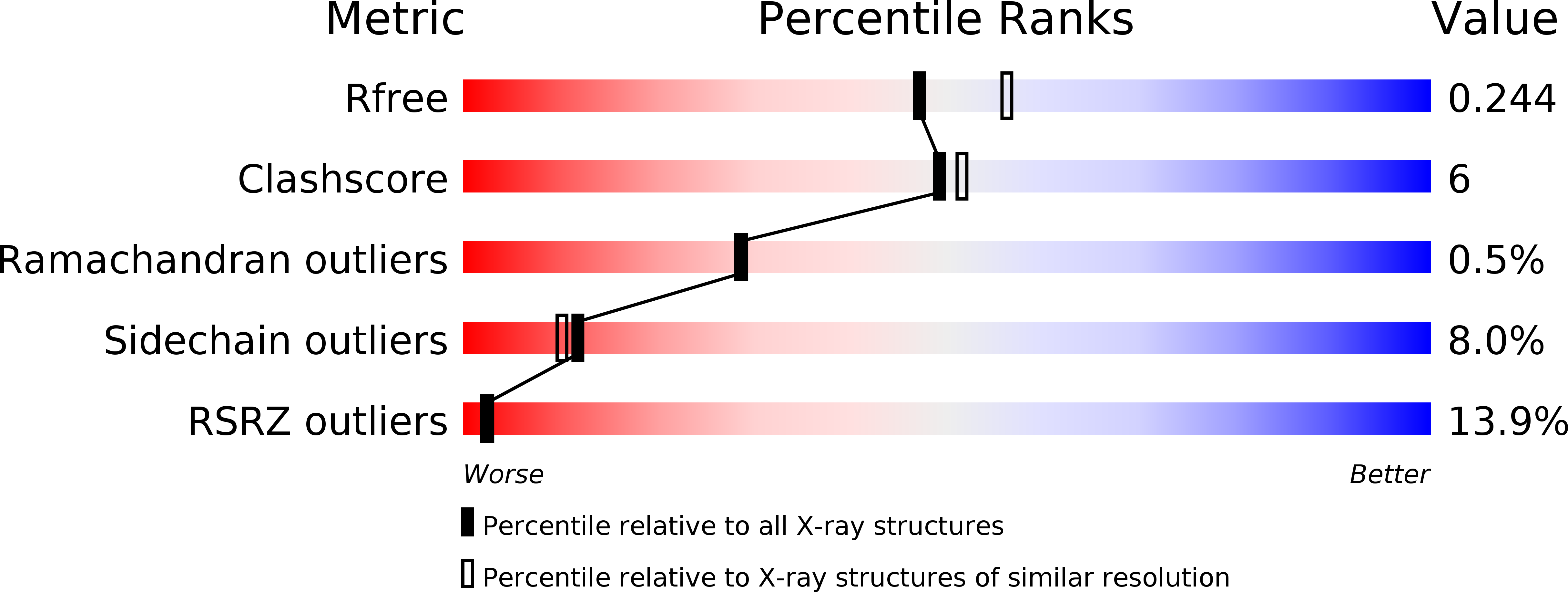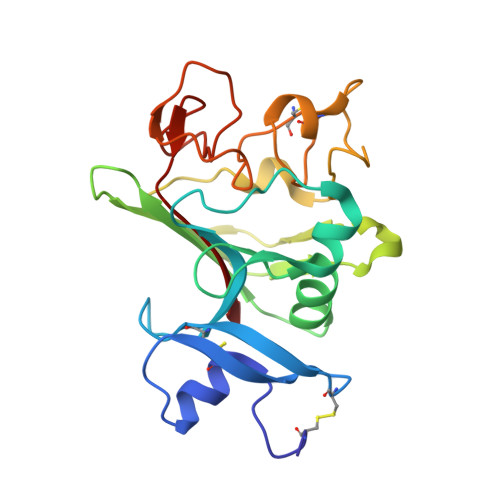Human L-ficolin recognizes phosphocholine moieties of pneumococcal teichoic Acid
Vassal-Stermann, E., Lacroix, M., Gout, E., Laffly, E., Pedersen, C.M., Martin, L., Amoroso, A., Schmidt, R.R., Zahringer, U., Gaboriaud, C., Di Guilmi, A.M., Thielens, N.M.(2014) J Immunol 193: 5699-5708
- PubMed: 25344472
- DOI: https://doi.org/10.4049/jimmunol.1400127
- Primary Citation of Related Structures:
4NYT - PubMed Abstract:
Human L-ficolin is a soluble protein of the innate immune system able to sense pathogens through its fibrinogen (FBG) recognition domains and to trigger activation of the lectin complement pathway through associated serine proteases. L-Ficolin has been previously shown to recognize pneumococcal clinical isolates, but its ligands and especially its molecular specificity remain to be identified. Using solid-phase binding assays, serum and recombinant L-ficolins were shown to interact with serotype 2 pneumococcal strain D39 and its unencapsulated R6 derivative. Incubation of both strains with serum triggered complement activation, as measured by C4b and C3b deposition, which was decreased by using ficolin-depleted serum. Recombinant L-ficolin and its FBG-like recognition domain bound to isolated pneumococcal cell wall extracts, whereas binding to cell walls depleted of teichoic acid (TA) was decreased. Both proteins were also shown to interact with two synthetic TA compounds, each comprising part structures of the complete lipoteichoic acid molecule with two PCho residues. Competition studies and direct interaction measurements by surface plasmon resonance identified PCho as a novel L-ficolin ligand. Structural analysis of complexes of the FBG domain of L-ficolin and PCho revealed that the phosphate moiety interacts with amino acids previously shown to define an acetyl binding site. Consequently, binding of L-ficolin to immobilized acetylated BSA was inhibited by PCho and synthetic TA. Binding of serum L-ficolin to immobilized synthetic TA and PCho-conjugated BSA triggered activation of the lectin complement pathway, thus further supporting the hypothesis of L-ficolin involvement in host antipneumococcal defense.
Organizational Affiliation:
University of Grenoble Alpes, Institut de Biologie Structurale, F-38044 Grenoble, France; Centre National de la Recherche Scientifique, Institut de Biologie Structurale, F-38044 Grenoble, France; Commissariat à l'Energie Atomique et aux Energies Alternatives, Institut de Biologie Structurale, F-38044 Grenoble, France;




















